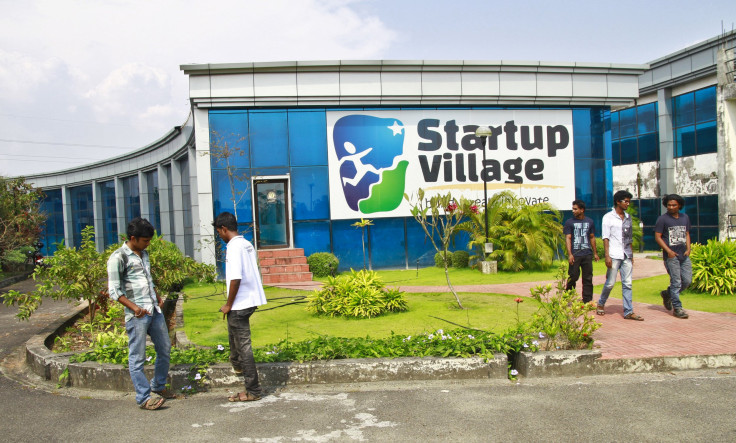Startup Investments In India Not Showing Any Signs Of Slowing Down

BANGALORE, India — Quashing concerns about a steep reduction in investments in Indian startups during the fourth quarter of 2015 from the quarter before, venture capitalists (VC) and angel investors who gathered at a tech summit in Bangalore, India, expressed confidence in the Indian startup ecosystem and said money was not in short supply.
Hundreds of Indian startups and dozens of investors from around the globe came together Tuesday in India’s tech hub, Bangalore, for Surge 2016, a two-day meeting of budding entrepreneurs and potential investors. The general mood was upbeat, contrary to figures that showed VC investment in India dropping to about $1.5 billion in the October-December quarter of 2015 from about $2.8 billion during the July-September quarter.
According to Dave McClure, founder of business accelerator 500 Startups — the most active VC investor in Asia last quarter — there was no shortage of money for startups and the fourth quarter dip was most likely a blip.
On Tuesday, 500 Startups launched a $25 million investment fund for India, Sri Lanka and Bangladesh, focusing on early-stage companies. Called 500 Kulfi (after a popular regional frozen dessert), the sector-agnostic regional fund will invest in between 25 and 50 deals a year.
Jalak Jobanputra, managing partner at FuturePerfect Ventures, told International Business Times that recent global stock market volatility had led to rationalization among investors, and affected later-stage financing. However, she said that entrepreneurs remained enthused due to “the overall market opportunity and long term growth prospects, particularly in a market like India, where we are seeing millions of people with more expendable income, and who are coming on to smartphones and mobile broadband markets.”
She added a word of caution. “Entrepreneurs will have to focus on financial metrics, not [on] growing at any cost as has been the case over the past few years.”
Investment Director at Intel Capital, Sanjit Singh Dang, was also bullish on the Indian startup scene, and said there were a lot enthusiastic and passionate entrepreneurs in the Indian market. Commenting on investments, he told IBT: “Funding is doing fine for early-stage companies, raising series A and B, the late stage companies are seeing an impact. The fundamental reason is, till 2-3 years ago, IPO investors started investing in pre-IPO rounds, which are D and E, and jacked up the valuations. And when those companies went public, they couldn’t sustain those valuations.”
Karthik Reddy, managing director of Blume Ventures, echoed the sentiment, saying seed funding remained strong as ever, and the slowdown in investments, if any, was limited to big ticket investments. “If you remove the companies that have raised more than $50 million and push them aside, you will see that seed capital investment has not slowed down,” he told IBT.
Explaining things from a slightly different perspective, Sreedhar Prasad, partner, ecommerce & startups at KPMG India, said that despite abundant availability of money in the market, startups may struggle to raise funds because they were too focused on the idea while losing sight of its execution.
“I was observing many of the startups here [Surge], and everybody is talking about the idea, nobody is talking about the business. That’s what startups are significantly missing. Operating model and revenue streams, they don’t understand. Most of these guys are making the blunder of going to an investor with a half-baked idea. That is the problem we are seeing today,” Prasad said.
Prasad also defended the regulatory environment in India, which entrepreneurs have often blamed for not being encouraging. “Even the regulators are new to this business. So you can’t blame the regulator today. For example, what is Uber? Is it automotive, ecommerce, a financial service or a technology company? The regulatory environment in India is not mature enough to define it. The regulator is also on a learning curve,” he told IBT.
The government, led by Prime Minister Narendra Modi, seems to be trying to not just change its image but also actively support entrepreneurs. In January, Modi launched the Start-Up India initiative, which would create a dedicated corpus of 100 billion rupees ($1.45 billion) to fund startups, and said the government was working toward making it easier for startups to do business, as well as fast-tracking their patent applications and simplifying the process of exiting businesses.
The Indian government also approved Wednesday the setting up of Atal Innovation Mission (named after former Prime Minister Atal Bihari Vajpayee), a committee made up of academics, entrepreneurs and researchers that aims to promote setting up world-class innovation hubs in the country. Initially announced in February last year, the mission will have an initial fund of 15 billion rupees ($218 million).
Binod Kumar Bawri, a member of the committee, told a gathering at Surge that the mission aimed to create enterprises worth $300 billion to $500 billion in India over the next five years. He also said the government would give startups multiple tax sops in the upcoming budget (to be announced Feb. 29).
Bawri later told IBT that the mission will also provide three-year funding for innovation hubs to be set up across the country, and that the money for it would be separate from the funding already announced for the mission.
The one big takeaway from Surge 2016 for the Indian startup ecosystem? The coming year will see a surge in investments into startups by venture capitalists and angel investors who have become more discerning.
© Copyright IBTimes 2024. All rights reserved.





















